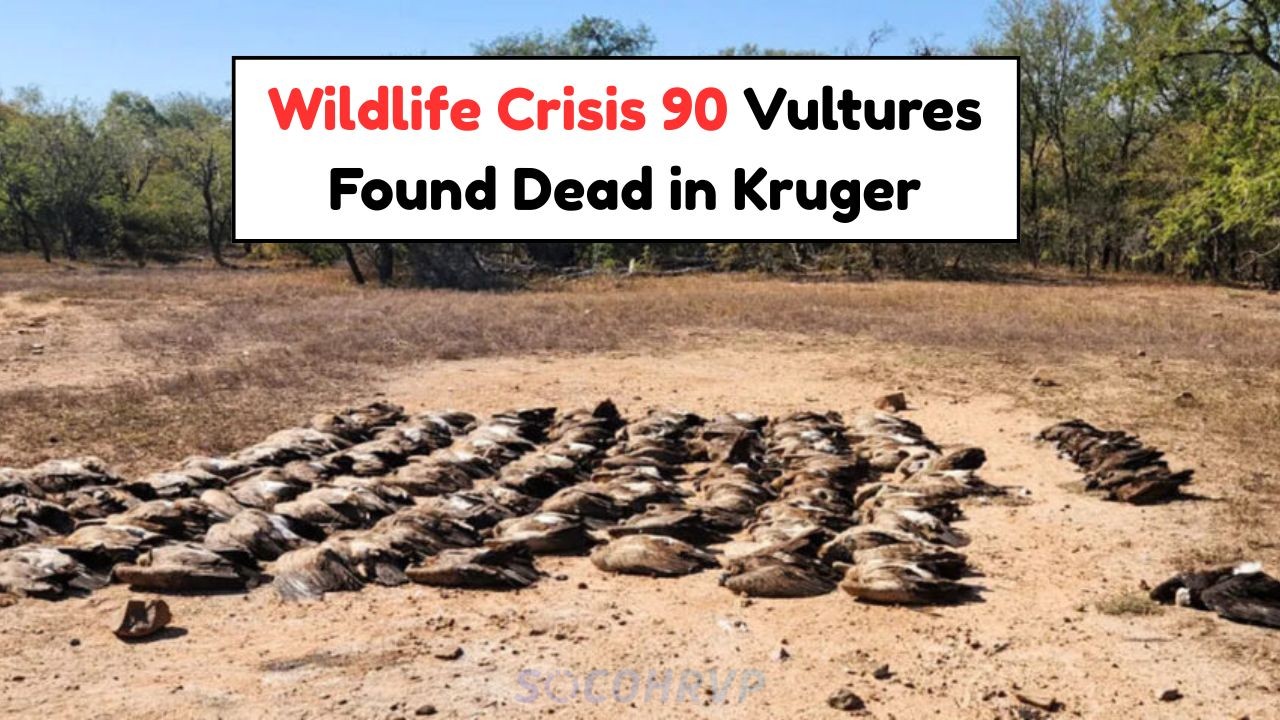July Crisis in Kruger: 90 Vultures Poisoned, Conservationists Raise Alarm
Impact of Vulture Poisoning in Kruger Park
July Crisis in Kruger: 90 Vultures Poisoned has sent shockwaves through South Africa’s conservation community. The mass poisoning of these vital scavengers, discovered in the heart of Kruger National Park, has highlighted the ongoing threat to wildlife from illegal poisoning activities. Vultures play a crucial role in maintaining ecosystem health by cleaning up carcasses, thus preventing the spread of disease. The loss of 90 vultures in a single incident severely disrupts this balance, endangering both biodiversity and the health of the ecosystem. Conservationists are urging immediate action to prevent further tragedies and protect the remaining vulture population.
- Vultures as Ecosystem Cleaners: Vultures help prevent disease outbreaks by consuming carcasses.
- Impact on Biodiversity: The loss of vultures can lead to increased rotting carcasses and potential disease spread.
- Illegal Poisoning Practices: Poachers often use poison to target vultures, aiming to prevent them from revealing poaching activities.
- Conservation Efforts Needed: Immediate measures are required to safeguard the remaining vulture population.
Conservationists Issue Dire Warning on Vulture Safety
The recent poisoning incident in Kruger has prompted conservationists to issue a stern warning about the threats facing vultures in South Africa. As apex scavengers, vultures are indispensable to the environment, yet they are increasingly targeted by poachers. Conservation groups are calling for heightened surveillance and stricter enforcement of wildlife protection laws. The South African National Parks (SANParks) is working closely with various NGOs to implement anti-poisoning campaigns and raise awareness about the critical role vultures play in nature.
| Threat | Impact | Action Needed |
|---|---|---|
| Poisoning | Decline in vulture population | Stricter law enforcement |
| Habitat Loss | Reduced nesting sites | Habitat restoration |
| Human Conflict | Negative perception | Community awareness |
Urgent Steps for Vulture Conservation
In response to the tragic events in Kruger, several urgent steps are being proposed to safeguard these majestic birds. Conservationists emphasize the need for a multi-faceted approach combining law enforcement, community engagement, and educational initiatives. These efforts aim to curb the illegal use of poisons and foster a more vulture-friendly environment.
- Enhanced Monitoring: Installing tracking devices on vultures to monitor their movements and health.
- Community Programs: Educating local communities about the importance of vultures in the ecosystem.
- Legal Action: Strictly enforcing penalties for those caught using poisons.
- Research Initiatives: Conducting studies to better understand vulture behavior and threats.
Collaborative Efforts for Vulture Protection
| Organization | Role | Action |
|---|---|---|
| SANParks | Park Management | Implement anti-poison measures |
| NGOs | Conservation Support | Raise awareness and fund research |
| Local Communities | Key Stakeholders | Participate in educational programs |
Understanding the Role of Vultures in South Africa
Vultures are often misunderstood creatures, yet their role in South Africa’s ecosystem is invaluable. As nature’s clean-up crew, they aid in waste management, thus preventing the spread of diseases that could affect both wildlife and humans. The loss of vultures could lead to an ecological imbalance, highlighting the need for comprehensive conservation strategies.
- Ecological Balance: Vultures help maintain the natural balance by disposing of carcasses.
- Health Benefits: By eliminating dead animals, vultures prevent the spread of diseases.
- Indicator Species: Vultures are key indicators of environmental health.
Future of Vulture Conservation in Kruger
The future of vulture conservation in Kruger and South Africa at large depends heavily on collaborative efforts between conservationists, governmental bodies, and local communities. By fostering a collective approach, the aim is to rebuild the vulture populations and ensure their survival for future generations.
| Strategy | Goal |
|---|---|
| Community Engagement | Raise awareness and involvement |
| Policy Enforcement | Strengthen wildlife protection laws |
| Research & Development | Innovate conservation techniques |
FAQ: Vulture Conservation in South Africa
Why are vultures important to the ecosystem?
Vultures play a crucial role in disposing of carcasses, preventing the spread of diseases.
What is the main threat to vultures?
The primary threat is poisoning, often linked to poaching activities.
How can communities help in vulture conservation?
Communities can participate in educational programs and help monitor vulture activity.
What actions are being taken to prevent vulture poisoning?
Efforts include stricter law enforcement, anti-poisoning campaigns, and community engagement.
Are vultures protected by law in South Africa?
Yes, vultures are protected under South African wildlife conservation laws.








